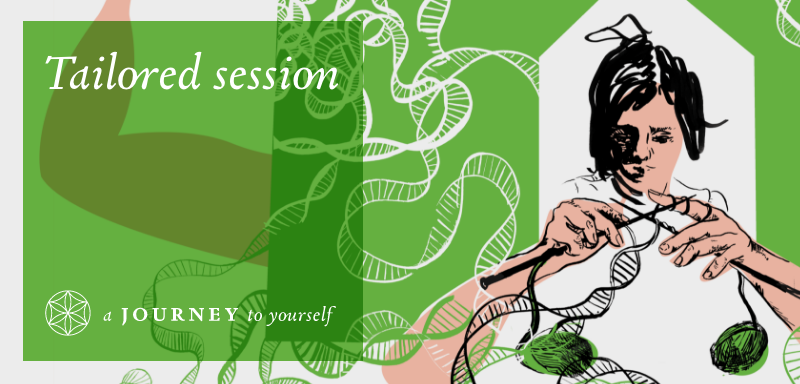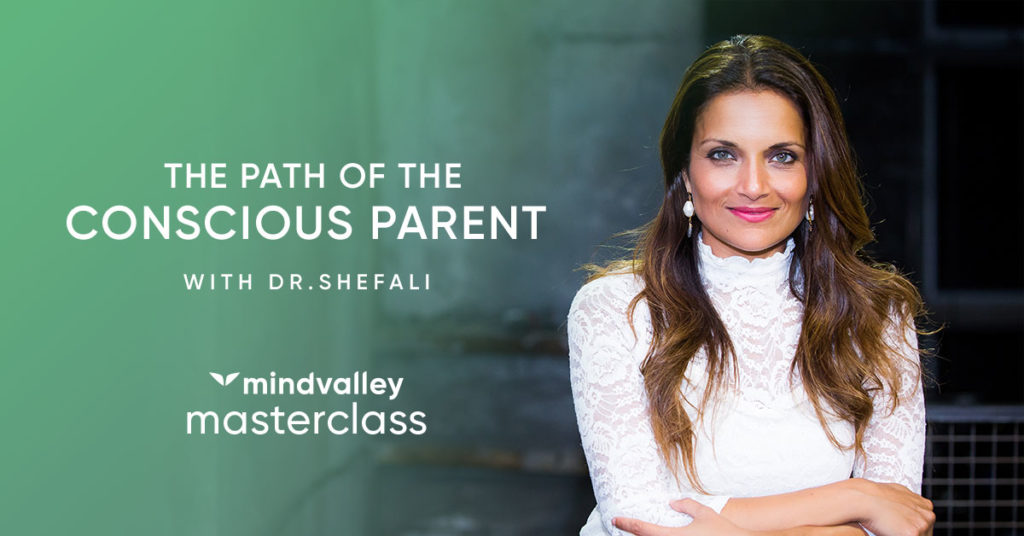Human is a multidimensional being functioning on many different planes of existence. Unfortunately, modern civilization, for some reason, focused only on the material dimension of their existence, completely ignoring the spiritual or emotional.
In this article you will learn what determines your ability to love yourself and others.
It happened because emotions were an obstacle in the practical pursuit of ever greater productivity of human labor needed in the process of industrialization of the world. The need to establish relationships with colleagues, conversations, sharing one’s sorrows or joys, did not translate into the profits of the factory owners and even reduced them. They were an unnecessary and ineffective waste of time from the point of view of factory owners. The consequence of this approach was the desecration of the body by the religious authorities. It was a significant turning point in human history, both in medicine and in religion. Thus, the unrestrained expansion of capitalism pushed emotions into the basement, excluding them from medical science as well. The drive to maximize profits has led to workers being treated as extensions of machines, not as people with emotional needs and feelings.
But when, with the development of technology, the mass production of goods and services became possible, emotions and feelings turned out to be irreplaceable in a rational world.
It was quickly noticed that they could be used to maximize the sale of manufactured products. So, they have become the most important method of acquiring markets and customers. In this way, they were brought back into the game and with their help, a society of mass consumers was created. Marketing and advertising began to relate to people’s unconscious feelings and desires. The need to be loved, admired, and accepted was used so that customers would not control their impulses and with their decisions, they fueled the machine of the global economy. This is how emotions and feelings have acquired a value in today’s world that can be measured with money. What will be the next step of our civilization in striving to obtain the maximum capitalization of humanity? Spiritualization of the economy? Or transhumanism and full robotization of people, and remote control of their behavior and emotions depending on the needs?
Such an objective way of treating emotions and feelings had a huge impact on the functioning of today’s world, its condition, and the individual life of each of us.
First, thanks to them, a man was dehumanized, cleverly turned into human resources, and then put on a pedestal, and used to manipulate their behavior. Today we all pay the price with our own life, health, and well-being. A rising tide of depression, a feeling of inner emptiness, an increasing number of divorces, an unstoppable demand for goods and services are just some examples. And satisfying emotional needs with compulsive purchases and behaviors has become a common practice in all societies. This has led to an over-exploitation of the Earth’s resources, putting our civilization on the brink of collapse.

What does your ability to love depend on?
All because we have completely ignored the meaning of feeling.
We decided that this was just something nice about our parents’ behavior. Even though it really is the basis of the mental health, intelligence, and functioning of every human being. It is the essence of humanity. If someone is a great person, it always means only one thing – that the person was loved.
People are open systems that interpenetrate each other. Also, other systems influence people like the environment: animals, plants, the cycles of nature, atmospheric phenomena, and water. We are shaped not only by what we eat and what we breathe but also by interactions with other people. None of us can survive on our own, because our physiological and mental systems develop only in relationships with other people.
Moments of encouragement, tenderness, and fun, tickling and cuddling that mother and baby or lovers spend with each other stimulate the brain and create the neural pathways that underpin intelligence, interpersonal skills, and being a decent and wonderful person.
Our emotional and social experiences lead to the release of biochemical compounds such as hormones and neurotransmitters, which play a huge role in shaping our identity, i.e. our ego. From the moment of conception to the second year of life we shape our nervous system. This means that our earliest experiences have a much greater influence on who we are as adults than we think.
Every child experiences common feelings of suffering, contentment, comfort, and discomfort, but does not have the psychic ability to process them complexly. As they develops, however, it gradually begins to get to know the world more and more. First, they recognize the most regular behavioral features of their caregivers. From the expression on their mother’s face, they can guess whether she will bring them pain or satisfaction. Then they begins to unconsciously categorize experiences with other people. Registering their repetitive elements and storing them as images in their brain, which they slowly begins to give meaning to over time. And events that make them feel very tense or aroused are permanently imprinted in their memory. In this way, the soul learns to function in a dual world.
Babies are like plasticine, from which an independent, own “self” will be created.
They have a specific, unique range of possibilities, a soul type, personality, a certain genotype, and a specific body. However, they do not develop spontaneously, but through interactions with other people who are their guides and teachers. They have systems that are active at birth and those that are incomplete and will only develop when stimulated by other people. This enables culture to be passed on to future generations. Thanks to this, each child can adapt to the circumstances and conditions in which the child is located. Adults must program each child. This is how they will adapt to a specific family and social group. Therefore, social skills are the first higher human skills that develop under the influence of social experience.
Ideally, then, this new human programming process should take place with love, unconditional acceptance, and compassion, as well as with full awareness of the entire process and its consequences. However, a new life is not always planned and awaited by their parents. Pregnancy can come as a surprise, the result of accidental sex after a party, with a partner you do not have any feelings, or even rape, associated with strong negative emotions and pain. Meanwhile, human emotions and feelings are shaped from the very first moments of their existence. The fetus absorbs the mother’s moods and emotional states, inherits the traumas of the father and their parents.
Parents and caregivers often did not get love themselves in their childhood. Nobody taught them how to express their emotions or feelings, or have experienced traumas, abuse, or humiliation.
Most of them, unfortunately, were not raised by conscious parents and did not become conscious parents themselves. In this way, from generation to generation, mankind has carried trauma, rejection, humiliation, and aggression, which has led to where we are today – separation from our hearts. And, consequently, from the center of your being.
However, there is still some chance. All you need to do becomes aware of your story and its consequences. Look at yourself from the side, and then plunge into yourself and love every bit of yourself. And then share that love with others.
Where to start? First of all, from self-observation and self-awareness. So, take a look at what determines your ability to love? What influences your affection, emotional intelligence, and empathy?
The type of foods your mother consumes during pregnancy.
First of all, the amount of nutrients is responsible for the impact of stress on the fetus and the development of its nervous system.
Consumption of alcohol, nicotine, and other stimulants by the mother during the first weeks of pregnancy.
This causes problems with empathy and communication with other people, as well as anti-social behavior. Or even morality problems caused by a lack of compassion towards others.
Mother’s stress.
Especially high levels of the stress hormone. Cortisol affects the development and growth of the nervous system of the fetus, the fearfulness of the child, and the way they deal with their own stress in the future. Parental stress causes stress in the child.
The mother’s expectations, well-being, positive and negative thoughts, her self-confidence influence her attitude towards a new person and preparation for a relationship with them. For many women, especially those who themselves, as children, lacked a strong emotional foundation, pregnancy is a stressful and destabilizing experience. Meanwhile, the mother communicates her mood and the way of establishing relationships with the child. Depressed women pass on their depression tendencies to their children.
Early separation from mother.
Her absence, distraction, occupation, emotional absence, paid work of the mother, long working hours, use of foster care while the child is still dependent on their parents. All these situations cause fear in children, depression, anxiety, and can even lead to suicide attempts in adulthood, eating disorders, or alcoholism.
Touching, hugging, stroking, rocking the baby.
In the first months of life, the primary source of pleasure for a child is smell, touch, and sound. Therefore, physical proximity gives the baby a sense of security and reassures them. A hug filled with love is a great stimulus for the development of empathy in a child.
Eye contact with a parent or care provider.
As the world becomes sharper, eyesight begins to play an increasingly important role for the child. Eye contact is their main source of information about other people’s feelings and intentions – especially their written feelings on their faces. Observation allows the child to understand the intentions of other people. Mirror neurons play an enormous role at this stage, as they recreate the emotional responses of the caregivers.
The child’s temperament and its influence on the parent’s personality style.
When, for example, a sensitive mother gives birth to an energetic, less sensitive child, she may start to treat them as an aggressor, under the impression that they do not fit together. Conversely, an energetic and aggressive mother will start treating her vulnerable child as a victim.
Parent’s insolence or neglect of a child by an apathetic or aggressive mother.
Responding to the child’s needs in a non-verbal way, e.g. using facial expressions.
If the parent is unable to identify with the child’s problems, because he or she has difficulties noticing their own feelings, they perpetuate the same model in the child. A child may grow up believing that they shouldn’t have any feelings because their parents didn’t notice them. If the parent pays attention to the child’s conditions and reacts quickly to them, there is a flow of feelings that reach the child’s consciousness, generating a specific pattern. It writes into the brain what is expected of other people by the way they behave. Parents teach emotions.
Caregivers’ ability to tolerate negative feelings, e.g. anger, hostility.
If the caregiver does not cope with them, they will not tolerate them in their children. Such children learn to suppress unwanted feelings.
Parents’ help of manage stress.
By touching, stroking, feeding, and rocking the baby, we teach it to release stress. Stress shapes stress reactions, e.g. panic, depression, tendency to overeat or lack of strong reactions, withdrawing from yourself, avoiding and repressing painful feelings, can lead to numbness and dissociation. Stress reactions, on the other hand, affect the child’s immune system. Also stress from abuse, neglect, and harmful treatment can lead to PTSD or morality issues.
Bond styles.
Children who have developed precarious emotional coping strategies cannot tolerate feelings and therefore cannot reflect on them. Avoidant children tend to put on emotional brakes whenever strong feelings begin to emerge. With ambivalent attachment, they express their feelings without thinking, disregarding other people’s feelings. Children with disorganized attachment styles tend to dramatize their feelings.
A strict upbringing.
It affects the lack of empathy towards other people, hostile attitude towards other people, and the expectation of mistreatment on their part, which can lead to paranoid, suspicious and irritable behavior.
Embarrassing the child and humiliating them.
It can lead to an attitude in which the child will have trouble defining their limits.
Parents’ ability to create positive feelings in their children.
Dopamine synapses in the child’s brain generate most of the positive feelings, thus influencing their life attitude – a positive approach to life.
Give your children enough attention.
If children don’t get enough attention, they become convinced that they are vulnerable and helpless. A poorly cared for child develops more intense stress responses and different biochemical patterns than a well-cared for.
Parent’s ability to identify and name feelings.
In the second year of life, the child increases the development of language skills. The child begins to convey their emotions verbally, as well as through touch and body language. If the caregiver can recognize the child’s emotional state and describe it in words, it helps the child develop a vocabulary with which they can identify their feelings and differentiate between different states. Thanks to this, they become more aware of their feelings, which makes it easier for them to create satisfying relationships with other people.
Understanding that babies cannot control their immediate emotions such as crying.
Infants cannot make mature decisions. This is because the periorbital cortex of the brain, which acts as a control center for immediate emotions, does not develop until after infancy. Therefore, the patience and understanding of the parents during this period are of great importance for the development of the child’s affection.
Being able to judge when a child is able to develop a little self-control, prudence, or independence.
It is the parent’s sensitivity to the child’s developing skills and acceptance of their dependence. If a child becomes independent too quickly, the belief that a child should not be pampered may be the cause of their emotional problems in adulthood. On the other hand, satisfying their needs for too long can lead to the development of a dependent attitude, which is why it is so important to feel the right moment.
Meeting the infant needs of the child’s parents.
When the needs of infancy parents are not met, they are unable to meet the needs of their children.
You are consciously unable to recall the early threads of your life. Unfortunately, however, it is not a forgotten period. It has been built into your body and it permeates your expectations and behavior. You can only reach it by working with your subconscious mind.
Your relationship to your feelings is of great importance in your life.
If you see them as your enemy, one way to contain them will be through social pressure and fear. When your every impulse has to be satisfied then relationships with others will become for you only a means to an end. By reacting to someone’s negative feelings, you help them to control them. However, when some negative feelings are forbidden for you, they will cause you a lot of excitement, which can sometimes cause destructive behavior and destroy your relationships.
Feelings allow us, to some extent, to share common experiences and react to each other.
Thanks to them, we are able to feel that we are all part of one great whole. People who lack self-esteem and the ability to properly self-regulate emotional states may become very self-centered in adulthood or be prone to depression. They may not be able to be flexible and react to the needs of others. People who constantly fall in love and fall out of love, addicted to food, drugs, workaholics, hypochondriacs, people constantly looking for someone or something to regulate their feelings are looking for a positive infancy that they have never experienced. Not being aware of your feelings, therefore, separates your heart from your mind, and consequently you from the rest of the world.
Source:
Sue Gerhardt “Why Love Matters. How Affection Shapes a Baby’s Brain.” („Znaczenie miłości. Jak uczucia wpływają na rozwój mózgu”), Wydawnictwo Uniwersytetu Jagiellońskiego, Kraków 2016.
Thanks to our partnership with Mindvalley, you can now learn conscious parenting from the best experts in the world.
Discover a new model of parenting Oprah called “Revolutionary” and “Life-changing” so you can create the ideal environment for your children to thrive and blossom into their most authentic self with conscious parenting expert, Dr. Shefali Tsabary
What does your ability to love depend on? What does your ability to love depend on?



